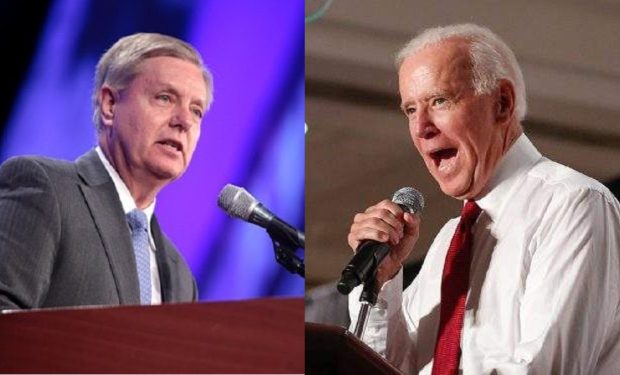President of the United States Joe Biden announced yesterday that he will withhold offensive weapons shipments to Israel if it invades the city of Rafah in Gaza, after the U.S. advised against the planned ground invasion.
“Civilians have been killed in Gaza as a consequence of those bombs and other ways in which they go after population centers,” Biden told CNN. “I made it clear that if they go into Rafah — they haven’t gone in Rafah yet — if they go into Rafah, I’m not supplying the weapons that have been used historically … to deal with the cities.”
On Fox News, U.S. Senator Lindsey Graham (R-SC) voiced criticism of Biden’s decision to withhold weapons “in a war that Israel cannot afford to lose.”
Lindsey Graham: What do we do after we were attacked in Pearl Harbor? We dropped nuclear weapons on Japanese cities pic.twitter.com/kh7RU4flDw
— Acyn (@Acyn) May 9, 2024
Graham said: “What did we do after we were attacked in Pearl Harbor? What did we do to end the war with the Japanese? We dropped two nuclear weapons on two Japanese cities to make sure our soldiers didn’t have to invade Japan where you could have a million lives lost.”
Graham is referring to the detonation of two atomic bombs in August 1945 in the cities of Hiroshima and Nagasaki which killed between 129,000 and 226,000 people, most of whom were civilians. Two weeks later, Japan surrendered, effectively ending the war.
Still controversial, the dropping of atomic bombs on Japan is routinely justified as having saved many more lives than it cost, often being called the “least bad option,” and a prime example of the no-good-options dilemma commonly encountered in war.
Foreign Policy‘s examination contended that “The atomic bombs not only saved many thousands and possibly millions of Japanese lives, but they also saved the lives of even more Asians beyond Japan. Under the unforgiving rule of the Imperial Japanese Army, Chinese, Southeast Asians, and Indonesians were dying at the rate of perhaps as many as 250,000 a month.”
